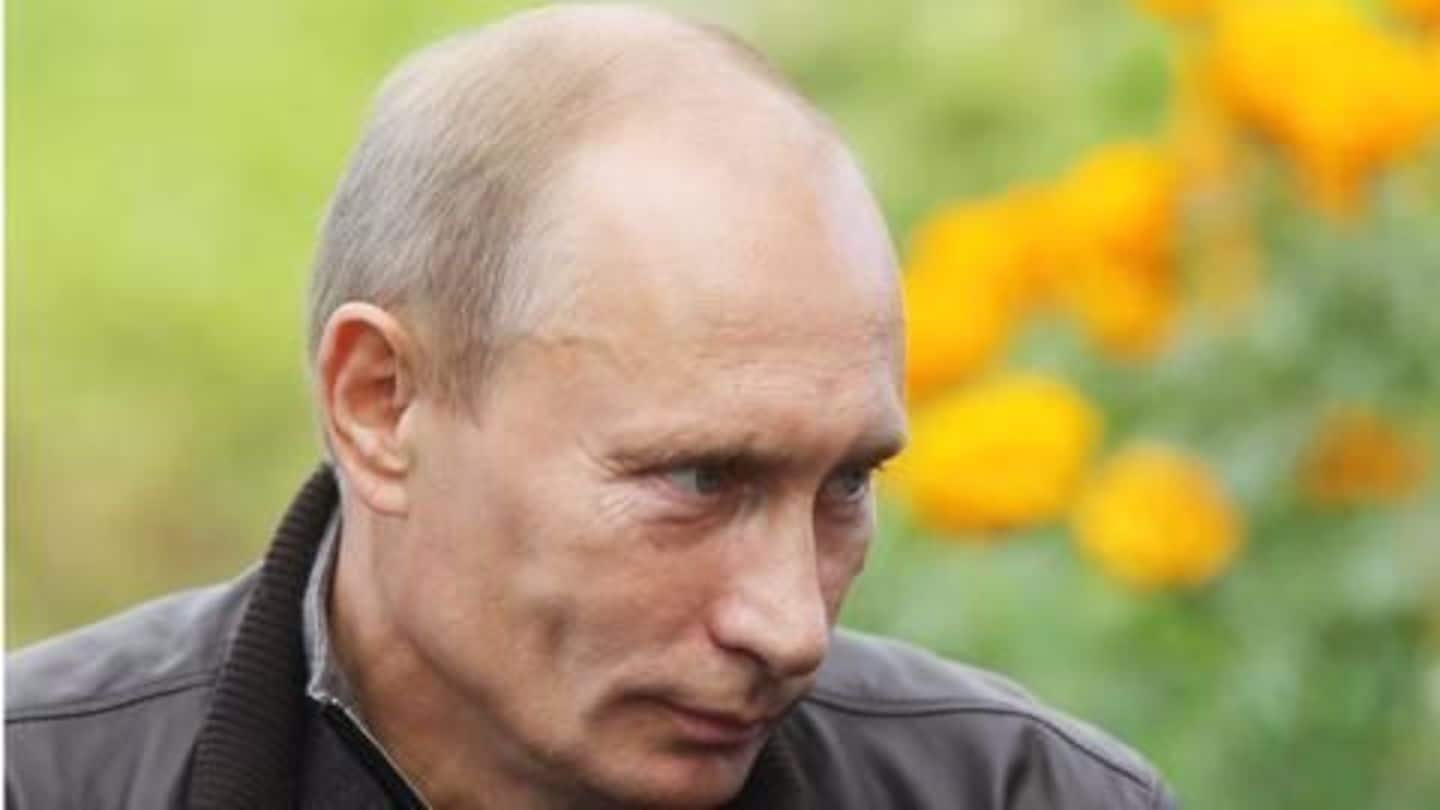
The Putin interviews: Oliver stone explores Putin's thinking
What's the story
Keeping superpowers on their toes for many years, Russian President Vladimir Putin has built himself up to be a symbol of power.
Putin's unapologetic stance on Russia's actions and fearlessness to question US authority has further given him a cult-status.
In a new docu-series titled "The Putin Interviews", American director Oliver Stone, interviews Putin.
Let's know what's on Putin's mind!
About
The Putin Interviews
"The Putin Interviews" is a four-part Showtime docu-series, where American director Oliver Stone holds conversations with Putin on crucial issues including his alleged interference in US elections and his views on homosexuality.
Along with many Putinisms, the series provides a glance into Putin's personal thinking and worldview, giving the viewers an understanding on what factors could guide Russia's policy in the future.
Information
Oliver Stone: Filmography
Oliver Stone is renowned for his Vietnam war trilogy: Platoon (1986), Born on the Fourth of July (1989) and Heaven and Earth (1993). He recently directed 'Snowden' and has interviewed Venezuelan dictator Hugo Chavez and Cuban leader Fidel Castro.
Putin's viewpoint
Watch it for the many 'Putinisms'
On being asked whether he ever has bad days, Putin replies, "I am not a woman, so I don't have bad days".
Speaking on homosexual men, he notes, "I prefer not to go in the shower with him. Why provoke him?"
He further accuses the US of trying to destabilize Russia and maintains that Russia has never intervened in other countries' domestic affairs.
Early life & Career
Vladimir Putin
Putin was born in Leningrad on 7 October, 1952 to Maria Putina and Vladimir Spiridonovich Putin, a Soviet naval officer in World War II.
Aspiring for a career in military or intelligence early on in life, Putin studied law at the Leningrad State University and later went on to attend KGB School No.1 in Moscow, going on to serve in the KGB later on.
Beginnings
Political career
Putin's political career began with his appointment as Prime Minister under Boris Yeltsin's Presidency. He later went on to assume Presidency after Yeltsin's unexpected resignation.
Becoming President for a second time after elections in 2000, Putin faced criticism for his attempts to suppress dissent. Putin's United Russia Party later secured a majority of popular votes in Duma, a strong sign of approval.
Information
Power switching operations
Although Putin was not allowed a third Presidential term under the Russian Constitution, Putin masterminded a power-switching operation whereby Putin exerted dominance through the Presidential appointee Dmitri Medvedev, while he was appointed as PM, until re-election as President in 2012.
Putin's policies
Aggression, suppression or effectiveness?
Severely weakened and embarrassed after the disintegration of the Soviet Union, Russia's foreign policy started getting more assertive under Putin, leading NATO to fear a resurgent Russia.
Russia was also seen to play a more aggressive role fighting in the Syrian conflict and annexing Crimea.
Putin has been criticized for suppressing domestic dissent and violating human rights of those including the LGBT community.
Details
Public image
While those including Hilary Clinton have described Putin to be a bully and a dictator, Putin has been termed a strong leader compared to Barack Obama, by President Trump.
Putin's cult status can be attributed to his macho public image associated with his interest in sports, wild animals and martial arts.
Putin's sharp retorts to journalists are termed 'Putinisms' and are very popular.
Latest Controversy
Did Putin intervene in US elections?
President Trump's affinity with Putin has caused many to allege that Russia interfered in the 2017 US elections.
Although Putin has repeatedly denied these allegations, a US intelligence community assessment expressed high confidence that Putin ordered an influence campaign to diminish Clinton's chances of victory.
Recent testimony given by ex-FBI director James Comey indicated that there may be evidence confirming the same.